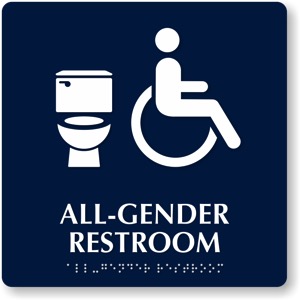
When referring to the “LGBT” community, most people mean a group that includes lesbian, gay, bisexual, and transgender individuals. When referring to legislation, however, the LGBT label is often slapped on anything that benefits lesbian, gay, bisexual, or transgender individuals.
The change in conjunction is small, but far from harmless. Protections based on sexual orientation and gender identity are not inseparable for a number of reasons: sometimes because of how the discrimination was enacted, as with Don’t Ask Don’t Tell (DADT); sometimes because of how the “fix” is written, as with some attempts to pass the Employment Non-Discrimination Act (ENDA); and sometimes because the realities of the discrimination require different fixes, as with some medical needs.
With so much of the focus on same-sex marriage, it seems only fair to highlight some transgender specific initiatives.
San Diego
San Diego’s municipal code has prohibited discrimination based on gender identity for some time. In April, the Council voted unanimously to add gender identity to the nondiscrimination policy for choosing City contractors. Last week, the City’s Human Relations Commission endorsed a letter to the mayor and City Council in support of gender inclusive restrooms.
California
Equality California’s legislative goals for 2015 include three bills specific to the transgender community.
AB 87. California already prohibits lawyers from kicking out a potential juror based on sexual orientation, among other things. AB 87 would expand that protection to more groups, including transgender individuals.
SB 703. Much like the recent action by the San Diego City Council, this bill would prevent California from doing business with companies that discriminated against transgender people with regard to benefits. The legislation is broadly worded, but the main impact would be on healthcare coverage.
SB 731. As it stands, an adolescent rejected by their family because of their gender identity could be placed in a youth home based on their anatomic sex. SB 731 would ensure that gender identity is taken into account when placing foster youth.
The Personal Privacy Protection Act. Signature gathering will likely begin shortly on a ballot initiative to force people to use government facilities “in accordance with their biological sex.” Low voter turnout in 2014 dropped the number of signatures needed to reach the ballot, so 2016 could see a Prop-8-like battle over basic safety and dignity for transgender Californians.
National
The most recent attempts to pass ENDA included protections based on gender identity, but it has yet to be introduced in this Congress. Given the concerns about religious exemptions and the Republican controlled Congress, it probably won’t be.
Allowing transgender Americans to serve openly in the military is more promising. Transgender service is barred by medical codes, so it wasn’t affected by the repeal of Don’t Ask Don’t Tell. Fortunately, those codes can be changed without Congressional action. Positive developments are an American Medical Association statement that there is no medical reasons to ban transgender service, and recent comments by Defense Secretary Ash Carter that he is “very open minded about” changing the policy.











